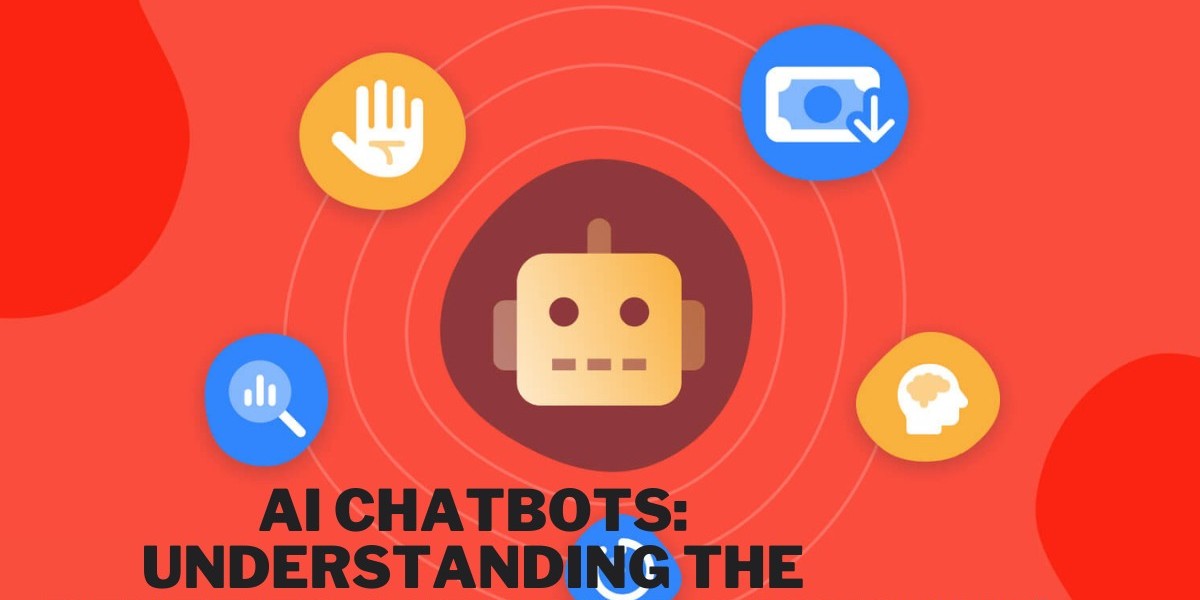In today’s fast-paced digital world, businesses are constantly seeking ways to improve customer experiences and streamline their operations. One powerful tool that has gained widespread adoption is the chatbot. These automated systems are designed to simulate human conversation, offering businesses an efficient way to engage with customers. As these technologies evolve, it's essential to understand both the benefits and limitations of using chatbots in various industries.
What Are Chatbots?
Chatbots are software programs that use predefined rules or advanced algorithms to communicate with users in real-time. They can answer questions, provide information, process transactions, and perform other tasks, all through a conversational interface. These systems can be found on websites, in apps, and on messaging platforms, providing a seamless way for customers to get assistance without the need for direct human interaction.
Benefits of Chatbots
24/7 Availability
One of the biggest advantages of chatbots is their ability to operate around the clock. Unlike human customer service representatives who work within specific hours, chatbots are always available to assist users. This constant availability enhances customer satisfaction, as users can receive immediate responses to their queries at any time, whether it’s day or night.
Instant Responses
Chatbots are capable of providing immediate responses, helping customers get answers to their questions without waiting in long queues. This quick interaction is particularly valuable in industries like retail, banking, and customer service, where time-sensitive issues need to be addressed promptly.
Cost Efficiency
By automating routine tasks, chatbots help businesses reduce the need for a large customer support team, leading to significant cost savings. With fewer employees required for repetitive queries, companies can allocate resources to more complex or high-value activities. This makes chatbots an attractive solution for businesses looking to cut operational costs while maintaining customer satisfaction.
Consistency in Responses
Human employees can sometimes give varying answers to the same question, which can confuse customers. Chatbots, however, provide consistent and reliable answers every time. This ensures that customers receive accurate information, reducing the risk of errors or misunderstandings.
Improved Customer Engagement
Chatbots can be programmed to engage customers in a personalized manner, offering product recommendations, sending reminders, or even engaging in casual conversation. This kind of interaction can lead to improved customer loyalty and a stronger relationship between the business and its clientele.
Scalability
Chatbots can easily handle large volumes of customer inquiries simultaneously, making them an ideal solution for businesses experiencing rapid growth or seasonal spikes in demand. With a chatbot in place, companies can scale their customer support operations without the need to hire additional staff.
Limitations of Chatbots
Lack of Emotional Understanding
Although chatbots can simulate human conversation, they often fail to understand the emotional context behind a customer's message. For example, a chatbot may not be able to detect frustration or impatience in a user's tone, potentially leading to a less empathetic response. This lack of emotional intelligence can make chatbots less effective in handling sensitive or complex customer issues.
Limited to Predefined Scripts
Many chatbots are still reliant on predefined scripts or keywords to operate, meaning they can struggle to understand unexpected questions or queries outside of the scope of their programming. This limitation can lead to frustration for users who may need assistance with unique or complex issues that the chatbot isn’t equipped to handle.
Complex Queries Require Human Intervention
While chatbots are great for handling simple tasks, they are not always capable of resolving complex or nuanced customer queries. When faced with intricate issues, chatbots often have to escalate the conversation to a human agent. This can result in delays and disrupt the otherwise smooth customer experience that chatbots provide for basic inquiries.
Miscommunication Risks
Chatbots rely heavily on natural language processing (NLP) to understand and respond to user input. However, NLP is not always perfect, and chatbots may misinterpret user messages, leading to incorrect or irrelevant responses. This can result in customer frustration and may even drive customers away if the miscommunication is not resolved swiftly.
Dependence on Technology
Chatbots are reliant on technology and, like any software, can experience technical issues or glitches. This may cause the system to crash, fail to process requests correctly, or provide delayed responses. For businesses that rely on chatbots for customer service, any technical failure could negatively impact the user experience.
Privacy and Security Concerns
Since chatbots handle personal and sensitive customer data, security is a critical concern. Poorly designed chatbots can be vulnerable to hacking or data breaches, potentially putting customers' personal information at risk. Ensuring that chatbots are secure and comply with privacy regulations is vital for protecting user data and maintaining trust.
How to Make the Most of Chatbots
To maximize the benefits of chatbots while minimizing their limitations, businesses should focus on a few key strategies:
Continuous Improvement: Chatbots should be regularly updated and improved based on customer feedback and data. This ensures they stay relevant and can handle new types of queries.
Hybrid Models: Using a hybrid approach that combines chatbots with human support can help businesses strike the right balance between automation and personalized service. Complex issues can be routed to human agents, while routine tasks are handled by chatbots.
Enhanced NLP Capabilities: Investing in chatbots with more advanced natural language processing (NLP) capabilities can improve their ability to understand and respond to user input more effectively, reducing the risk of miscommunication.
Here are some popular chatbots with their limitations:
1. Labiba
Limitations:
- Limited NLP capabilities: Can struggle with understanding complex or ambiguous queries.
- Requires manual setup: Needs a significant amount of manual configuration and integration.
- Relies on predefined scripts: May not handle unusual or unexpected user queries well.
2. Drift
Limitations:
- Limited to sales and marketing: Mainly designed for lead generation and marketing, not ideal for general customer service.
- Can be repetitive: Might repeat answers if the user asks the same question multiple times.
- Not ideal for complex support issues: Needs to escalate to a human agent for complex inquiries.
3. Tidio
Limitations:
- Limited multilingual support: While it supports multiple languages, the quality of responses in some languages can be subpar.
- Basic conversational abilities: Not suitable for handling in-depth or highly detailed customer inquiries.
- Can struggle with tone: Tidio can misinterpret customer sentiment, leading to impersonal or misaligned responses.
4. Zendesk Chat
Limitations:
- Limited to predefined responses: It uses predefined workflows, making it less flexible in handling unique customer situations.
- Requires training: Needs continuous input from agents to improve and respond better.
- Not always context-aware: It may fail to maintain the context of a conversation across multiple interactions.
5. ManyChat
Limitations:
- Limited customization: Less customizable than other platforms, especially for businesses with unique needs.
- Limited integrations: While it integrates with major platforms, it lacks the flexibility of more advanced chatbots.
- Not ideal for high-level support: ManyChat works well for marketing but doesn’t excel in handling complex customer service issues.
Conclusion
Chatbots are undoubtedly transforming the way businesses interact with their customers. They offer significant advantages such as 24/7 availability, cost efficiency, and scalability, which make them an attractive solution for companies in various industries. However, their limitations, such as a lack of emotional intelligence, dependency on predefined scripts, and technical issues, mean that they are not a one-size-fits-all solution. By understanding both the benefits and limitations of chatbots, businesses can leverage this technology effectively, improving customer experiences and optimizing operations.










